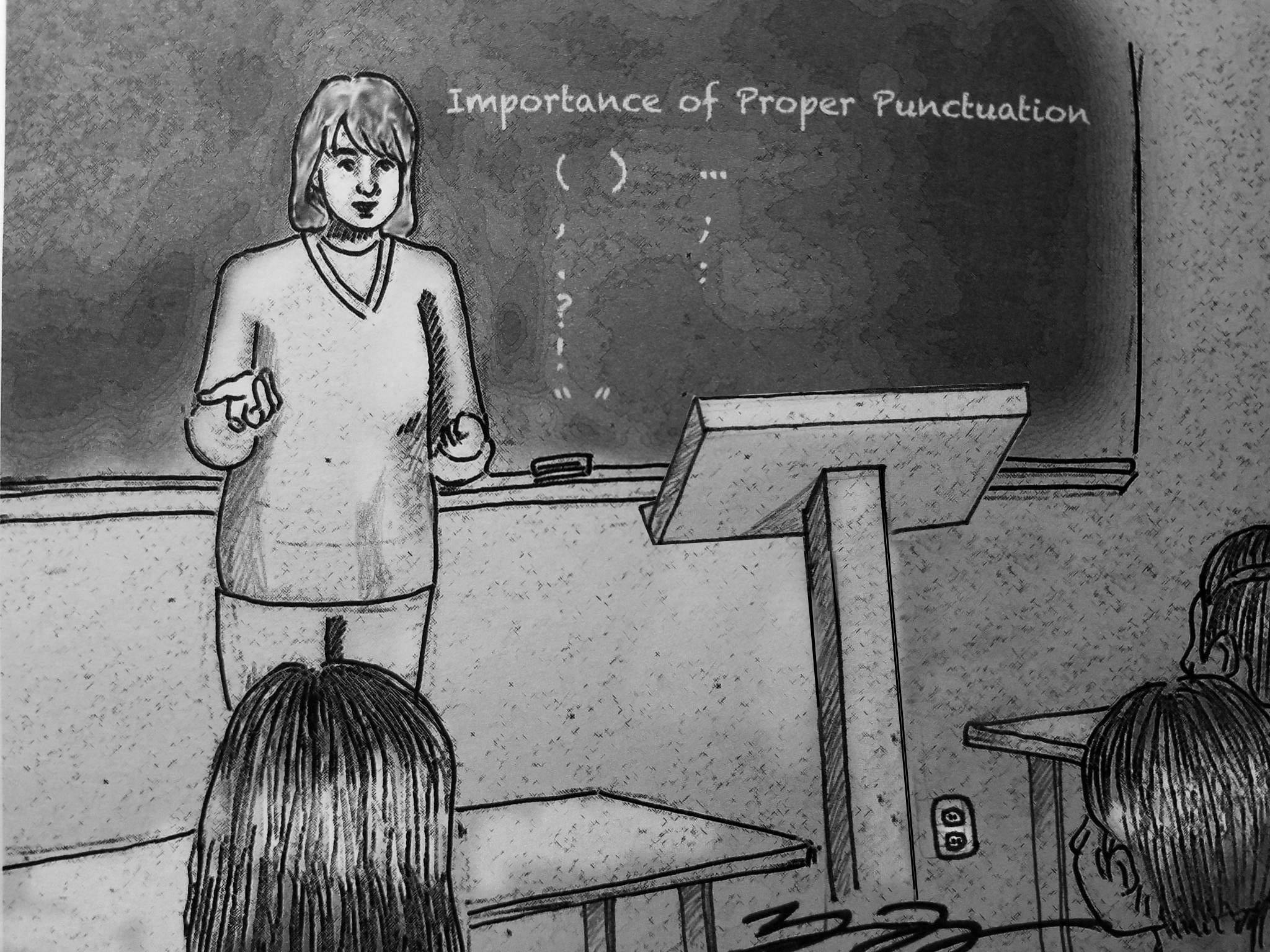Before diving into the specifics of grammar and writing in high school, I remember feeling unprepared when I sat down to write papers for class. I wasn’t sure how to organize my ideas, and I didn’t know when and where to use proper punctuation. But luckily, my high school English department prepared me well. When I came to GW this year, I was surprised by some of my peers’ lack of grammar and writing skills, especially in my University Writing class.
Students at GW are required to enroll in a UW course during their freshman year, which teaches students how to write and research at a college level. This serves as a prerequisite for the two Writing in the Discipline classes – courses in specialized topics that involve intensive writing – that students must take afterward. Unfortunately, UW isn’t sufficient when it comes to teaching these basic skills.
UW classes should incorporate more basic writing and grammar skills through in-class workshops, as well as take-home worksheets, to ensure students grasp the basics. Professors should dedicate two class periods early in the semester to review grammar and the basics of writing papers. This review will prepare students for writing assignments they’ll face in the UW class as well as throughout the rest of college, at internships and even after graduation.

Cartoon by Grace Lee
Georgetown University’s general education requirements ensure that freshmen take a writing course during their first year, and each class has a different topic, like UW courses. But unlike UW, Georgetown’s introductory writing courses actively incorporate grammar concepts like punctuation, semantics and syntax.
At my private high school in Connecticut, the English department heavily incorporated grammar and writing skills into the curriculum. For four years, I was drilled on sentence structure, punctuation, parts of speech and other grammatical aspects, which made me a better writer and prepared me for college-level curriculum.
Although I personally felt prepared from high school, it was through peer editing that I realized how much review other students needed before jumping into the 10 to 15 page end-of-term papers. I saw run-on sentences and grammatical mistakes, like misplaced commas and semicolons, in my classmates’ papers. This lack of grammatical knowledge couldn’t be blamed on the students – since many high schools don’t teach grammar as thoroughly as mine did – and the lack of grammar curriculum in high school was setting them up to write poorly written papers in this class and in future ones.
My UW professor provided no insight into grammatical rules – like when, where and how to use punctuation – or simple sentence structure.
But in my Introduction to Newswriting and Reporting WID course this past semester, my professor used two class periods to touch on simple grammatical rules. He reviewed basic punctuation and errors he’d often seen in previous students’ work, and dedicated a great amount of time to teaching Associated Press Style guidelines over these two class periods.
I learned more about grammatical rules from my WID professor than my UW professor, which shouldn’t be the case, because students are required to take UW before taking a WID class. Although my UW professor may have differed from other UW professors in simply deciding to cut grammar review from the curriculum, it is likely that other students have experienced the same lack of review in their classes. This unevenness across UW and WID classes proves to be unfair to students who have the professors who decide not to teach grammar fundamentals. This could be avoided with specific guidelines for review in UW courses, which aren’t mentioned in any course descriptions online.
This is why basic grammar and writing should be standardized across all UW and WID courses, like at Georgetown, through in-class workshops during two class periods early in the semester. Punctuation, sentence and paper structure, parts of speech, organization and how to write concise introductions and conclusions are various grammatical components that UW professors need to add to their course curriculums. This will prepare students to write strong papers for the rest of their college careers. If students don’t learn these critical fundamentals, then their grades on future assignments could suffer greatly, especially if professors already expect students to have a certain level of grammatical knowledge. Even for students like me, who have already been exposed to substantial grammar review during high school, a refresher would be helpful.
Learning about citations and how to complete research on various databases is not enough to ensure students walk away from their UW classes with sufficient knowledge about writing papers. Although these are certainly necessary skills, students need to grasp grammar and the basics of writing before jumping into other, more complex components of research papers, which should come later in the semester after the review.
UW classes need to start incorporating more grammar and basics into their curricula, and standardize it across sections, so that all students can be exposed to grammar and writing fundamentals to ensure future success in and outside the classroom.
Christina DeBartolomeo, a freshman majoring in journalism and mass communication, is a Hatchet opinions writer.
Want to respond to this piece? Submit a letter to the editor.


